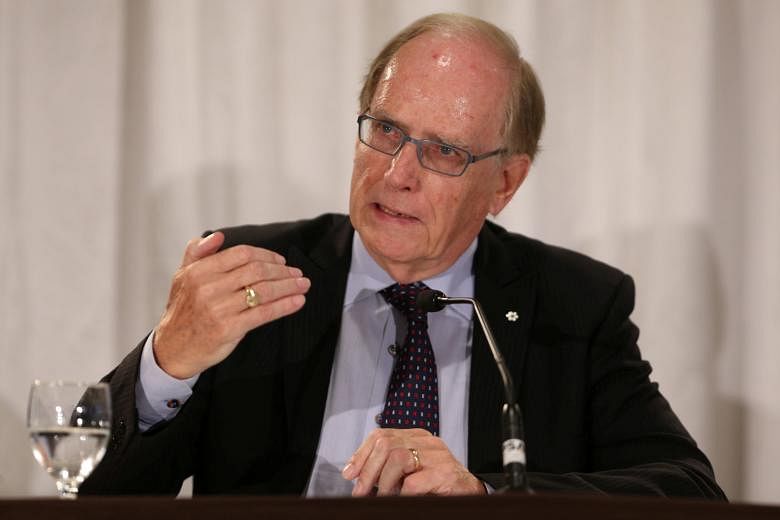TORONTO • The World Anti-Doping Agency (Wada) called for Russia to be completely banned from the Rio Olympics and other international sport after a report found widespread state action to hide doping across "a vast majority" of winter and summer sports.
An investigation, unveiled in Toronto yesterday by Canadian law professor Richard McLaren for Wada, found the FSB secret service helped "the state-dictated fail-safe system" carried out by the sports ministry and covering 30 sports.
The international anti-doping agency spokesman Ben Nichols said on Twitter: "Wada calls on sport movement to deny Russian athletes participation at international competition including Rio until 'culture change' achieved".
The International Olympic Committee (IOC) executive board will hold an emergency telephone conference today to decide provisional sanctions, over what IOC president Thomas Bach called "a shocking and unprecedented attack on the integrity of sports and on the Olympic Games".
He added: "The IOC will not hesitate to take the toughest sanctions available against any individual or organisation implicated."
-
Key findings of McLaren report
•The Russian Ministry of Sport directed, controlled and oversaw the manipulation of athletes' analytical results or sample swapping, with the active participation and assistance of the FSB (Russian secret service), CSP, and both Moscow and Sochi Laboratories.
•The state implemented a simple fail-safe strategy. If all the operational precautions to promote and permit doping by Russian athletes proved to have been ineffective for whatever reason, the laboratory provided a fail-safe mechanism.
•The state had the ability to transform a positive analytical result into a negative one by ordering that the analytical process of the Moscow Laboratory be altered. The Ministry of Sport, Russian Anti-Doping Agency and the FSB were all involved in this operation.
•After the completion of the 2013 Moscow world athletics championships, the laboratory held a number of positive samples that needed to be swopped by removing the cap and replacing the athlete's dirty urine before the samples were shipped to another laboratory as instructed by the IAAF.
•The investigation has established the findings set out in this report beyond a reasonable doubt.
AGENCE FRANCE-PRESSE
The review found the cover-up started in 2010 after Russia's "abysmal" results at the Vancouver Winter Olympics. It included the run-up to the London 2012 Olympics, as well as during the athletics World Championships in Moscow and the World University Games in Kazan in 2013 and the Winter Olympics in Sochi a year later.
The Centre of Sports Preparation of National Teams of Russia (CSP) was also involved.
The report also confirmed the accusations made by former Moscow anti-doping laboratory head Grigory Rodchenkov, who told the New York Times that dozens of Russians used performance-enhancing drugs in Sochi with approval from national sports authorities.
He claimed that up to 15 Russian medal winners at the Sochi Winter Games were part of a programme in which tainted urine samples were switched for clean ones.
However, McLaren refused to say whether his findings should lead to Russia being banned from the Rio Games, which begin next month.
"My mandate was to establish facts, not to make recommendations," said the man who was a member of Wada's independent commission, which last year exposed widespread doping and corruption in Russian athletics, leading to the ban on Russian track and field athletes from all competition.
"It is for others to take and absorb and act upon my report."
Wada does not have the authority to directly ban a country from the Olympics, but they can recommend sanctions to the IOC.
Many organisations, including the United States Anti-Doping Agency, have said that the Sochi revelations should lead to a blanket ban on Russia.
McLaren said that in the 57 days of his investigation, his team had "secured data from hard drives, revived deleted documents, reviewed thousands of pages (and) conducted cyber and forensic analysis of metadata".
He said that all of his conclusions had applied the criminal law standard of "beyond a reasonable doubt".
"I am unwaveringly confident in our report," he added.
REUTERS, AGENCE FRANCE-PRESSE, NEW YORK TIMES, THE GUARDIAN

